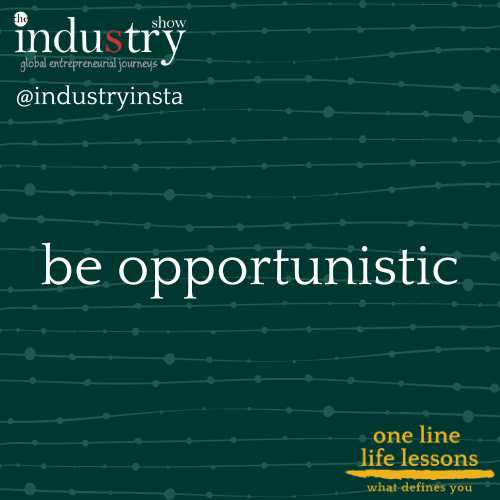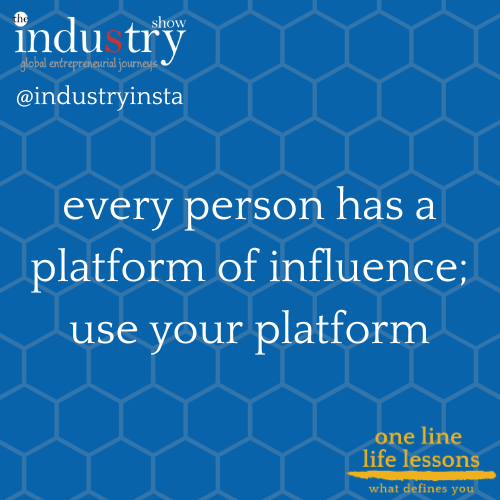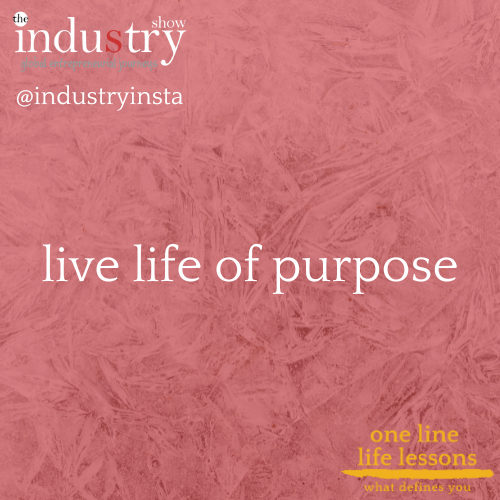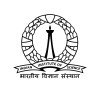Dr. Nalini Saligram is a scientist and entrepreneur with a deep commitment to public health. She holds a Ph.D. in Biochemistry from the Indian Institute of Science, and her early career was spent in corporate communications for companies such as Merck, GlaxoWellcome, and Bio-Rad Laboratories. This experience gave her valuable insights into the workings of the pharmaceutical industry and the challenges of communicating complex scientific information to a broad audience.
In 2007, Saligram founded Arogya World, a non-profit organization that works to prevent chronic diseases in India. Arogya World has developed a number of innovative programs to educate people about healthy lifestyles and early detection of diseases. The organization has also worked to improve access to healthcare in underserved communities.
Saligram’s dedication to public health has been recognized by numerous awards and honors. She is an Ashoka Fellow, a Clinton Global Initiative member, and a TED India speaker. She is also a passionate advocate for global health equity and has spoken out on the need for increased investment in developing countries.
Dr. Nalini Saligram is the founder of Arogya World – UN award recipient creating awareness and prevention of non communicable diseases (NCDs) in India that has reached more than 13 million people. She is an Ashoka award recipient. Nalini serves on the Dean’s Council at the Rollins School of Public Health at Emory University. Previously, she held executive positions at Glaxo SmithKline, Merck, and Merial. She is an alum of Indian Institute of Science, Bangalore.
Nalini’s One Line Life Lessons





Episode Highlights
- 01:00 – Nalini’s multifaceted identity: mother, wife, scientist, public health advocate, and global traveler.
- 02:00 – Nalini’s decision to start Arogya World, focusing on diabetes prevention in India.
- 03:00 – Importance of addressing non-communicable diseases (NCDs) and the impact of diabetes in India.
- 05:00 – Statistics on diabetes in India: 100 million diabetics, 136 million pre-diabetic individuals.
- 06:00 – Arogya World’s “doorstep health model” for prevention, reaching 12.5 million people with impactful programs.
- 07:00 – Discussion on the significance of preventing diabetes in people’s productive working years.
- 09:00 – Nalini’s perspective on the challenge of fundraising for Arogya World and the recent FCRA approval in India.
- 10:00 – Congratulations on UN recognition and the approval; small organization making a significant impact.
- 11:00 – Opportunities and challenges of scaling operations for Arogya World.
- 12:00 – Exciting stage of scaling programs like the school program and text message program for diabetes prevention.
- 13:00 – Nalini’s focus on scalability, sustainability, and making everyone a change-maker.
- 14:00 – Reflection on giving a TEDx talk and the importance of hard work and perfection.
- 16:00 – Arogya World’s initiative to make Bangalore India’s first “Aro City” and collaborating for public health.
- 17:00 – Nalini’s daily life balancing Arogya World, family, and friends; enjoying dinner parties and travel.
- 19:00 – One Line Life lessons from Nalini
- 21:00 – Nalini’s commitment to leaving a meaningful legacy and improving the world in tangible ways.
Transcript
Transcript
Nitin Bajaj: [00:00:00] Hey everyone. Welcome to The Industry Show. I’m your host, Nitin Bajaj, and joining me today is Nalini Saligram. Nalini, welcome on the show.
Nalini: Thank you Nitin for inviting me. I look forward to our conversation.
Nitin Bajaj: Likewise, and it’s great to have you here. I know it’s taken us a bit, but here you are. So let’s start with who is Nelani?
Nalini: Nitin, I think of myself as a slash So I am a mother slash wife slash scientist, a public health person now and a. Somebody who has a front row seat in India’s development scene. So all of that together, a global traveler. In some ways, that’s where my life has taken me. So all those things are me. So I think of myself as multiple people.
Nitin Bajaj: [00:01:00] And I can attest to that, having known you for a few years now. Tell us about Arogya World and why did you start this? What is the mission? What is the vision? And most importantly, why now?
Nalini: Yeah, so I started Arogya World 13 years ago. At that time I was working at Merck the pharmaceutical company, and I. Had joined it after a long trek throughout the world. And so I was really excited that I was at Merck. It was my dream to be at Merck and I was enjoying my everyday work with scientists. I was in public affairs working on rotavirus vaccines, so my day-to-Day work was pretty satisfying, but I was so Unhappy and underutilized. And it wasn’t Merck’s fault, it was the stage of life I was in. I was 50 years old and I felt I wasn’t doing what I was [00:02:00] born to do. I felt I had to be more than a bit manager in a big player. I really needed to see the difference I was making in the world. So I started Arro World and it. Probably the best decision I made in my life. I have, I work full-time, pro bono, and my last paying job was at Merck where somebody paid me. But it’s still, it is still the Best thing I could have done with me because I now feel I’m using all of me, my personality, my science background my ability to talk to people, persuade people, use my science background, use my public affairs experience, and really put it all to some good in the world because that became the biggest quest. To do something meaningful and make a meaningful contribution to global health. So Roge World was born at that time and I, [00:03:00] our mission is to do diabetes prevention in India. And the reason we chose this. Thing. This was because it was a new phase of global health. We had, I had in my life seen such great advances in HIV and its advocacy, and I’d seen so much in women’s health. And now this was the time for chronic diseases. When I started roia, it wasn’t fashionable, and now it is well known non-communicable diseases. NCDs, it rolls off everyone. . Tongue. Now it’s not an issue. But when I started Arua World, it was not a big issue. And one month after I started aa. , the UN called the Heads of State Summit the following year. So that’s why I felt, ah, this is why I had to leave Merck and do this world stuff. And it’s been deeply satisfying. I’m very excited about working with like-minded people and like-minded organizations, and it [00:04:00] still drives me today.
Nitin Bajaj: And I’m glad you’re driving this and you’re at the helm of this and you care about this topic because give us a sense for the size of the problem and also the impact you and Roge have been able to create over the past 13 years.
Nalini: Yeah, so the problem of diabetes is really big in the world today, and especially so in India. Indians are somehow prone to, diabetes in larger numbers. The risk is much higher. There must be a pre genetic predisposition, but we also have compounded things now with modern lifestyles. So there are a hundred million diabetics in India today. And 136 who are pre-diabetic. So that means they’re going to get diabetes very soon. So that’s like 250 million people and we really have to do something. This has become in a crowded agenda, public health agenda for India. This has become the that [00:05:00] everybody’s now caring about and trying to do something about it. Whether it’s screening or treatment or in our case prevention, it’s all needed. In India now, non-communicable diseases are causing two outta three deaths in the world. This is in true in India, in Africa, in all continents. There are more people dying from chronic diseases than from infectious diseases or maternal mortality or all the other causes combined. The other, we should remember is that Indians get diabetes at age 30 some 10, 20 years earlier than Americans. It is a real problem that hits people at the peak of their productive working years. And we need to find people before they’re 30 in order to prevent it.
So we’ve came up with something we called a doorstep health model that takes prevention to people outside the healthcare system. So we don’t expect people to go find Prevention through healthy living [00:06:00] and lifestyle change advice in the doctor’s office, they’re not gonna get it. So in the community setting, we take it to people, right?
In schools, in workplaces on their phones, on social media, in the cities, in the villages. So we want very much to make prevention accessible. What we call this a doorstep health model, and we’ve reached 12 and a half million people with all our programs over the last 13 years. And we have Shown impact 10 to 15% impact in its at least a couple of programs We have definitive pre-post behavior change impact and the others. The impact story is getting done. We have not yet finalized our impact reports.
Nitin Bajaj: Nalini, that is a phenomenal feat to reach that many people before something like this. And this is a life-changing thing. These lifestyle diseases, NCDs are life-changing. You mentioned this as it hits you in your [00:07:00] thirties your most productive next 20, 30 years. And this can keep you from achieving your potential and scale. A quarter of the country that is a, India’s a very young country, the youngest country in the world, and for the entire generation to be exposed and be predisposed to . Like diabetes is, it’s I would say a threat to the entire nation. So thank you for doing what you do.
Nalini: Yeah, so the thing that we can all think about is that, hey, India is at, its. Economic best, if you wanna call it that, it’s on the world stage. Everyone’s looking up to India and the future is golden. But if, unless India tackles diabetes and diseases like diabetes and the complications of [00:08:00] diabetes, it’s really all the energy in India, startups and all the future is gonna get wiped out, and it’s gonna become zero unless all these heads of startups start taking care of diabetes in their young workforce.
Nitin Bajaj: So true. And also just to bring about this point. I believe the 250 odd are the ones that have been tested and are known cases. There may be more in India. The biggest challenge is if I don’t get tested, if I don’t go see a doctor, I don’t know what’s causing these issues. So there is a fair percentage of that may not be accounted for in this number.
Nalini: Yeah. And that is actually one of the focus areas for the government. They’re doing a lot of screening and a lot of referrals so that at least people know their diabetes status. Diabetes and hypertension. They’re screening for that.
Nitin Bajaj: So Nalini, I’m curious to hear at this massive scale of operation and outreach [00:09:00] that Arga and the team is doing. When you step back and look at the big picture, what is the one big challenge you would like to call out?
Nalini: Yeah. So when I think about things ni and I really feel for a small organization where 24 people or so we punch above our weight. We are reaching large numbers. We actually got a UN award for the reach and the programs that we do. So we are no getting to be known for program and impact, but where we are struggling, I can use the word struggling, is in fundraising somehow for some reason, maybe because I’m a scientist, we don’t know how to raise funds and that has become For us now, a roadblock to how much we can grow or scale. If we have more funds, we can do more, we can hire more people, we can talk to more governments and we can [00:10:00] scale. So fundraise funding has become a real challenge. We just yesterday came to know that we’ve got FCRA approval in India now, so that should be a huge weight off our shoulders and should really help us raise funds now better, we can be more competitive. both India and us. So I’m looking forward to the next few years to sorting this funding question as well. But it has, for nonprofits, particularly small ones, it is a existential threat
Nitin Bajaj: First off, congratulations on the recognition from the UN and also the approval. That’s it’s a lot of work to get that done, so congratulations and I do wanna call this out. The small is a relative term, you . Are reaching more than a million people a year and consistently growing, so I would take that with a pinch of salt. Calling you small
Nalini: Thank you.
Nitin Bajaj: Nalini, on the flip side of [00:11:00] challenges are opportunities and I would love to hear the one that you are most excited about.
Nalini: Right now, Nitin, I feel we have finished the proof of concept stage. And we have entered the scaling stage. So at least two of our programs, the school program where we teach adolescent kids through games and activities the basics of healthy living. And we are getting at least 15, 20% improvement in knowledge as well as behaviors.
So that’s a very exciting program. And The other one is our text message program in diabetes where we send text messages on healthy living for six months, twice a week. And we had first done it with Nokia, and now we have other partners with whom we are reaching both these programs. Are ready for scale. And this is the most exciting thing for me every day with deeply thinking about how to scale, who to partner with, how to talk to [00:12:00] Karnataka, how to talk to Punjab, who can we work with? And this is beyond the science part of things because the proof of concept is done according to me. So now it’s a question of really, persuading people to partner with us. Some of them. I also think of scale as not just mere expansion to millions more. It is actually also bringing down costs per beneficiary so that we can Truly scale, right? When you can, if you are increasing the cost, then you are not scaling. You have to reduce cost and increase size and you reach and then you have scale.
So we are thinking all of that through. It’s very exciting scaling, scalability and sustainability. And it truly is Occupies a good part of the day for me and for all my team. It’s not just me. We are all in it thinking about how to make everybody a change maker. How to how to pursue, use technology as a platform technology. How to[00:13:00] increase the impact because we are not happy with what we have done. It’s just a drop in the bucket. Plus, we all really believe that what we have achieved or developed in India can translate to other parts of the world, particularly the Middle East and Mexico. And we feel culturally what we have done will work in those regions. So want to see what more we can do. In my lifetime,
Nitin Bajaj: All super exciting and I’m glad you’re in the, not just in the thick of it, but also driving the leading edge. So looking forward to many more successes from you to come. Now, I would love to pause a little bit and look back in the rear view mirror and have you share some experience from your life and career where things did not meet your expectations or became a success beyond your imagination.
Nalini: Yeah. Yeah. [00:14:00] So let me let me give you a couple thoughts on this. I recently was invited to give a TEDx talk and I used to debate in college, so I It was like, oh, no problem, I can do this. So I, went to Pune. It was in Ted TEDx in Pune. So I went to Pune and worked with everybody else.
And then I realized that everyone else had prepared. they were buttoned up in their speeches and mine was not. So I had, they had given, they had assigned a coach to me. And from that coach, I actually learned so many life lessons on that last day before the speech, final speech went fine, but oh my God, I worked harder than I. Ever worked in my life. It wasn’t enough to just know the point. Of course, I know story, but it was important to articulate it.[00:15:00] And properly, and it was a lot of work. And I felt like I have eighth grade. I’m back taking an exam, so it ended up teaching me so much about hard work and perfection and wise. In some situations, 90% is not good enough. You have to strive for more. So that was good. I also want to mention two things that I am really happy that it has fallen in our laps. One is the. Ashoka fellow. It has been a very rewarding group of people to belong to. The selection process is very tough and necessarily so it has been a very rewarding experience. And the other one, is something we came up with in November, 2022 and we began make, made Bangalore India’s first Arro city. So it’s a way of working [00:16:00] with others and getting people to volunteer to do something about the city they love and improve the health of the citizens in a collaborative fashion.
Making pledges publicly so that everyone can follow the Progress of the pledges. So it has been very rewarding to do that. And I feel that is scalable in a different way. Even just working together in coalitions, the World Health Organization was so excited because they said we have this healthy city con, concept from 30 years, but it’s sitting in the library shelf and here you are running with things. And so that is that is exciting.
Nitin Bajaj: That is super exciting and I do wanna make a note of this for a scientist to. Be so humble about the challenge of delivering your own story that you’re living, that shows a lot of humility. So thank you for sharing that moment.
Nalini: Yeah.
Nitin Bajaj: Nalini, what do you do for fun?
Nalini: I am always[00:17:00] every day. In a continuum between Arogya world and my family and my life and my friends. So my family’s always making fun of me that, oh, don’t talk to mom. She’s in Arogya world. It, it is a continuum for me. My friends are our donors sometimes and our, donors become our friends sometimes. So it’s just my life is one whole day in which there is work and there is home and it’s all mixed up. So I enjoy spending time with my family. I have two daughters and now a granddaughter, and so we enjoy that. I travel a lot with my husband as well as for work. And I truly love throwing dinner parties. that. Enjoy having eight or 10 people at home and I work very hard for my dinners.
Nitin Bajaj: And it’s a true joy when you found your passion and the work you wanna do, and it just becomes one life where you’re not having to choose [00:18:00] in between. It’s just one full day where you can go back and forth and not even realize the difference. So congratulations you for having achieved that.
Nalini: Yeah, really. I really do enjoy that. In fact, every day I feel privileged that I get to do what I do, jump out of bed and you can’t wait for work to begin. That is very exciting For me, every day is an adventure.
Nitin Bajaj: That is amazing. Now, you mentioned something that is in our playbook the one Line Life Lessons. I would love for you to share some of your life lessons with us and our audience.
Nalini: Yeah, let me see. I’ve lived a long life already. I’m I was 50 plus when I started Arro World. So for me it is, age is a matter of attitude. You can be 50 and very young and you can be [00:19:00] 20 and very old. So it’s a question of how your, how the zest for life and To enjoy every aspect of life and work. That to me makes, it, makes me young even now. So that’s one thing is that age I think is irrelevant. The other would be be opportunistic. That can become your life strategy. So if you look Atia World, we had not planned its, thing, there are many things that are the same today that were When we started, which is the mission and the vision, we still work in diabetes prevention through healthy living and all of that is constant and we work with partners. So all of that is okay, but. We grabbed opportunities and I myself have grabbed in my life opportunities. And if I had thought through my career, perhaps I’d have been very frustrated. So it’s important to make use of whatever comes your way and not worry that it is not part of your life strategy.[00:20:00] Then another one would be use your life platform very well. So every single person, In the world has a platform of influence, sphere of influence. You can influence maybe three people or 3 million people. But hey, use it because you have, you will have followers especially if you are authentic and a leader. And especially if you are not if you put on heirs and graces, people will see through it. So being authentic is very important and living a life of purpose is probably, I was very sure I wanted to leave a legacy. I wanted to do something with my life. It has to count for something more than what I had achieved until then, even now. So I keep on working to do something useful and meaningful and improve the world in some tangible way.[00:21:00]
Nitin Bajaj: Thank you, and you’re making more than just a. A small, tangible difference. You are positively impacting millions of lives and you’re just getting started, as you said. So the momentum is picking up. You are touching more lives every year than the previous year. So congratulations again on the journey so far, and I know many more successes are to come.
So thank you again for making time to be with us, to share your journey, your story, and your life lessons with us. We really appreciate it.
Nalini: Thank you. Look forward to getting to know you well and thank you for inviting me for this. Have a great day. Bye.
Stay in the Loop + Show Some Love!
Want to catch fresh episodes as soon as they drop? Hit “Subscribe” on Apple Podcasts or “Follow” on Spotify to never miss a beat.
Podcast reviews are like digital high-fives! They help out a ton, so I’d really appreciate it if you could leave a review and share your favorite part of this episode.








